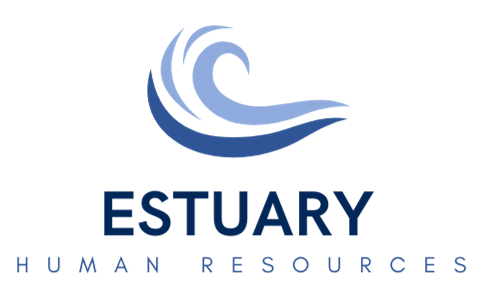As a small business operator your day-to-day operations are without doubt a labyrinth of challenges. With all that you must manage every day, it can be easy to underestimate your need for human capital planning. Human capital planning, the strategic management of personnel to optimize your business’s efficiency, productivity, and ultimately, its success, is critical for every small business but is often overlooked. To find out if your human capital management strategies and processes are designed to succeed, ask yourself the following questions.
Do you have a defined Human Resources Strategy?
Does your small business have a well-defined strategy aligned with the business’s objectives and overall strategic goals? Does your HR strategy take a proactive approach to outlining recruitment, training, performance management, and retention strategies that are tailored to your company’s goals and culture? If you answered no to these questions, you are likely relying on a reactive rather than proactive approach to managing your workforce. By creating a Human Resources Strategy with your company goals in mind, you will be creating a human capital roadmap that will help you minimize unforeseen problems and address challenges and issues proactively. You wouldn’t run the rest of your business without goals and strategies to reach them and shouldn’t manage your highest expense (human capital) without them.
One of the gravest errors a small business can commit is to sideline HR planning. With limited resources and manpower, it’s tempting to prioritize immediate concerns over long-term strategies. However, neglecting HR planning can lead to inefficiencies, misalignment of resources, and workforce discontent. Recognize HR planning as a cornerstone of your company’s success, worthy of your time, attention, and investment.
Have you engaged in workforce planning, and do you have a plan for meeting your future needs?
Does your small business conduct workforce forecasting and identify future skill requirements? Do you have a plan for how to provide the essential building blocks that will ensure you team will remain resilient, adaptable and capable of navigating evolving business landscapes?
Or as often happens, is your small business falling into the trap of short-term thinking when it comes to talent acquisition? If you are hiring based solely on your immediate needs without considering future growth, you are headed toward skill gaps and a hindered scalability in your business. If you engage in workforce planning you will be able to reduce your labor costs, identify where your skills gaps are and target them to create consistently better outcomes for your company.
Do you have an organized Recruitment & Hiring Process?
Does your small business have an effective, organized, repeatable recruitment and hiring process that is aligned with your company’s objectives and culture? If you answered no to this question, you are likely rushing through the recruitment process and/or relying on informal methods such as referrals that can result in bad hiring decisions and can ripple through your company’s productivity and lead to costly turnover. This has a negative effect on your company culture and ultimately your brand and bottom line.
By investing in a robust recruitment and hiring process that includes, job analysis, structured interviews, and skills assessments, to ensure the right fit for both the role and the company, your company will lower the cost of employee turnover, gain productivity and improve your overall culture. More importantly, you will gain the right people and skills you need to meet your company goals.
Do you have an employee development process and ongoing training that allows you to plan for future needs and succession?
Small businesses often view training and development as luxuries. Unfortunately, neglecting employee growth opportunities regardless of the size of your business leads to stagnation and disengagement. To ensure long-term success, small businesses must invest today in continuous learning to enhance their current employees’ skills and performance. The byproduct of this investment is loyalty and retention in your workforce. With the reduction in hiring costs and a more skilled productive workforce leading to hire profits, small businesses cannot afford to not invest in the development and ongoing training of their workforces.
Do you understand and adhere to your compliance and regulatory obligations?
Human resources planning encompasses more than just staffing and development; it also involves ensuring compliance with labor laws, regulations, and industry standards. Small businesses, particularly those without dedicated HR personnel, can easily overlook or misunderstand legal requirements, exposing themselves to costly penalties or worse, litigation. Small businesses must prioritize staying informed about relevant regulations and seek professional guidance when necessary to mitigate these risks.
Is your current workforce nimble and able to adapt to a changing marketplace and business environment?
As we all know, change is inevitable. Is your small business clinging to outdated human resources practices and resisting workplace culture evolution? If the answer is yes, you risk falling behind your more agile competitors. To get ahead, it is time to instead, embrace flexibility and adaptability in your human capital strategies and processes. In continuously reassessing strategies and processes you will be able to pivot more easily to accommodate shifting priorities, technologies, and market conditions.
Do you have an eye on employee engagement and feedback from your team?
Do you regularly ask for, compile and analyze employee feedback for insights? If your answer is no, you are neglecting to tap a valuable resource! Employee feedback is key to fostering a culture of open communication. Soliciting input from employees can provide invaluable insights into your company’s strengths, weaknesses, and areas for improvement. Neglecting employee engagement can lead to morale issues, high turnover, and diminished productivity, undermining your HR planning efforts.
Effective HR planning is indispensable for the success and sustainability of your small business. By embracing strategic, proactive approaches to personnel management, you can cultivate high-performing teams capable of driving growth and achieving their objectives in an ever-evolving marketplace.
If you need a hand with your human capital management strategies, reach out to Estuary Human Resources. We are here to help!

Jennifer Fullman, SHRM-SCP
Principal, Estuary Human Resources

